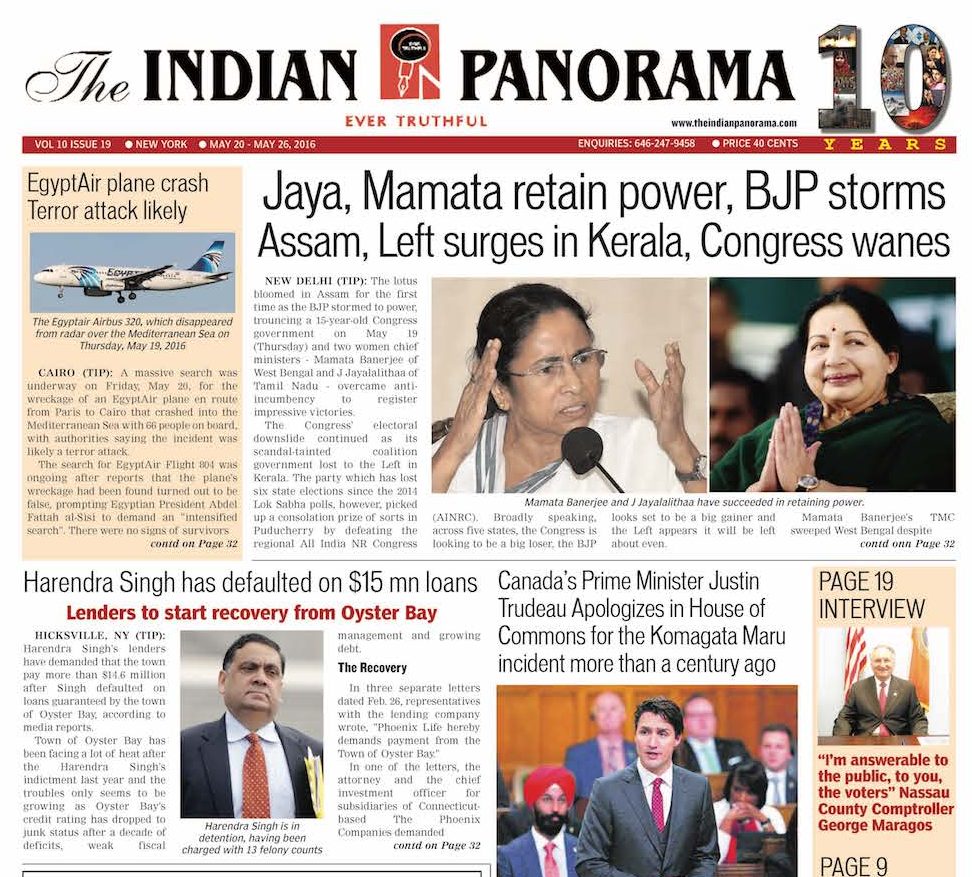
NEW YORK (TIP): Bhai Sahib Mohinder Singh Ahluwalia, Chairman, Guru Nanak Nishkam Sewak Jatha and The Rev. Dr. Katharine Rhodes Henderson, President, Auburn Theological Seminary have been selected for the 2014 Guru Nanak Interfaith Prize. The award will be given away at a special function on April 8, 2014.
Bhai Sahib Mohinder Singh Ahluwalia is chairman of the Guru Nanak Nishkam Sewak Jatha in Birmingham, United Kingdom, a faith-based charitable organization. A visionary Sikh faith leader, he serves on the University of Birmingham Community Advisory Board and is patron of the United Religions Initiative and a member of the European Council of Religious Leaders (World Council of Religions for Peace). He is also a supporter of the Council for a Parliament of the World’s Religions (CPWR) and Globalization for the Common Good, and a senior member of The Elijah Interfaith Institute.
He holds honorary doctorates from the University of Central England for service to the community and from the University of Birmingham for support of work in education, faith and divinity. He has had extensive experience in the multidisciplinary fields of housing, town planning, roads, water supply, sanitation and conservation work, and has been an agent of change in the fields of engineering, faith propagation, charity work, education and research. He worked as a civil engineering professional and housing executive for 20 years, providing aid to Zambia under the technical jurisdiction of the UK’s Overseas Development Administration (ODA), now called the Department for International Development (DFID).
The Rev. Dr. Katharine Rhodes Henderson is president of Auburn Theological Seminary, a seminary rooted in Christian tradition with multi-faith commitments, which prepares bold and resilient leaders who can bridge religious divides, build community, pursue justice, and heal the world. Raised in Louisville, Kentucky, Dr. Henderson earned a Master of Divinity at Union Theological Seminary in New York City and a doctorate at Teachers College, Columbia University. She is ordained in the Presbyterian Church (U.S.A.) and is the author of God’s Troublemakers: How Women of Faith Are Changing the World (Continuum, 2006). She is an internationally known religious leader who has been featured in The Washington Post, The New York Times, Los Angeles Times, and Crain’s New York Business, and on MSNBC’s Melissa Harris- Perry and NPR’s On the Media.
Dr. Henderson participated in a United Nations panel on the global culture of peace, and she attended a White House session on human trafficking. She also led efforts to create MountainTop, a summit of nearly 100 faith leaders to promote cooperation and catalyze the multi-faith movement for justice. As the founder of Sikhism, Guru Nanak taught that we discover our oneness with humanity by exploring the differences that separate us. The Guru Nanak Interfaith Prize recognizes and supports the efforts of those individuals and organizations who work to advance that vision. According to Guru Nanak, religions are paradoxical. They help us to discover and cultivate what is best and most hopeful about one another and the world that sustains us. And yet, they often spark conflict and violence.

The Rev. Dr. Katharine Rhodes Henderson, President, Auburn Theological Seminary who has been selected for the 2014 Guru Nanak Interfaith Prize, is the first woman recipient of the award.
The Guru Nanak Interfaith Prize is based on the conviction that religious dialogue helps to minimize religious conflict by cultivating awareness that we each view the world from the limitations of our own traditions, and we have much to learn from the traditions of others. The Guru Nanak Interfaith Prize was established with a gift from the family of Sardar Ishar Singh Bindra and Sardarni Kuljit Kaur Bindra, prominent Sikh- Americans living in Brookville, New York. In September 2000, the Bindra family endowed the Sardarni Kuljit Kaur Bindra Chair in Sikh Studies at Hofstra University in honor of the family’s matriarch.
The Guru Nanak Interfaith Prize is an expression of Sardar Ishar Singh Bindra’s longstanding dedication to interfaith harmony. The Guru Nanak Interfaith Prize in the amount of $50,000 is awarded biannually to an individual or organization chosen by a distinguished panel of judges. The goal of this award is to enhance awareness of the critical role of religious dialogue in the pursuit of peace as well as to provide direct support for the furtherance of such activities. His Holiness the 14th Dalai Lama of Tibet, Tenzin Gyatso, was named the first winner of the Guru Nanak Prize in 2008 in recognition of his many years of promoting interfaith dialogue and understanding around the world. Others who received the prize include 2010: Rabbi Arthur Schneier and Religions for Peace in 2010 and Dr. Eboo Patel in 2012.
Award Criteria
A panel of judges composed of religious leaders, academics and individuals known for their commitment to interfaith dialogue will consider the recent and career accomplishments of nominees. Award recipients will have demonstrated extraordinary leadership, courage and a capacity for inspiring in others a willingness to embrace the vulnerability that is the key to true religious dialogue. Eligibility: Any living individual or organization that the nominator believes has contributed to the promotion of constructive dialogue and/or relations between faith communities. Criteria: The committee invites nominators to consider a wide-range of activities. A nominee may, for example, have organized members of different faith communities to work toward a common goal; produced a work of art or literature that contributes to or publicizes the importance of interfaith dialogue; or uses a position of authority or power to bring faith communities together. Nominees may be designated on the basis of a single contribution or a lifetime of contributions.





Be the first to comment